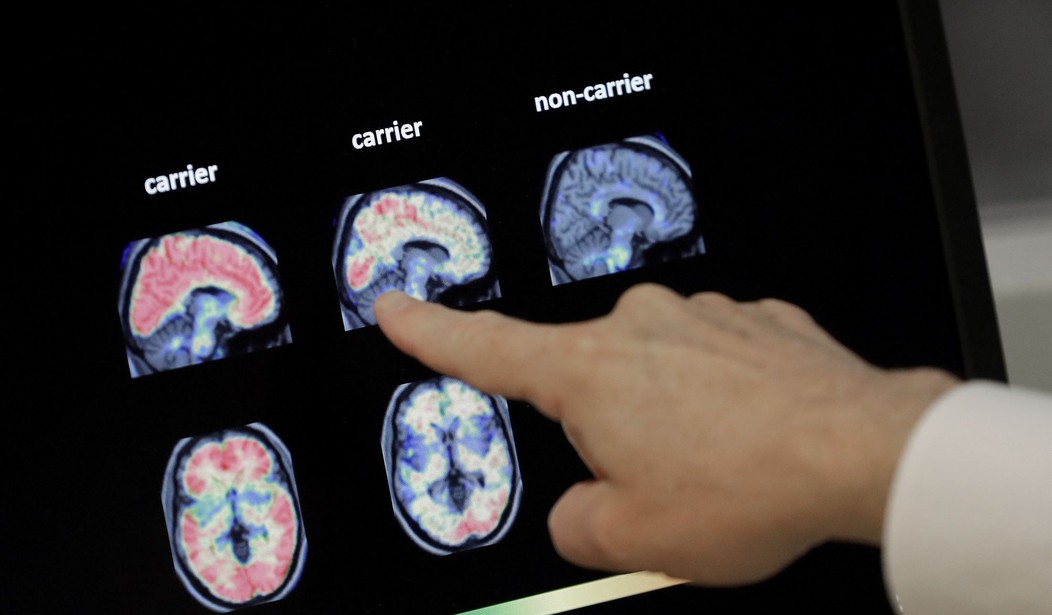In order to better understand the workings of the human brain and how stem cells might be used in modern medicine, scientists have been growing what are known as “organoids” in the laboratory. As the name would imply, organoids are miniature versions of human organs, grown in a petri dish and stimulated with stem cells. A lot of research has made progress with various organs, but perhaps one of the creepiest and potentially ethically questionable is the growth of human brain cells. Starting with brain cells from a human donor, the scientists grow them into miniature versions of brains. But one of the more recent experiments at University Hospital Düsseldorf in Germany produced an even stranger result. The tiny brains began to grow a pair of rudimentary eyes. And the eyes were capturing light and feeding information to the brain. (Science Alert)
Mini brains grown in a lab from stem cells have spontaneously developed rudimentary eye structures, scientists report in a fascinating new paper.
On tiny, human-derived brain organoids grown in dishes, two bilaterally symmetrical optic cups were seen to grow, mirroring the development of eye structures in human embryos. This incredible result will help us to better understand the process of eye differentiation and development, as well as eye diseases.
“Our work highlights the remarkable ability of brain organoids to generate primitive sensory structures that are light sensitive and harbor cell types similar to those found in the body,” said neuroscientist Jay Gopalakrishnan of University Hospital Düsseldorf in Germany.
A human brain grown in a laboratory that begins spontaneously growing eyes and processing visual sensory input should be pretty questionable to start with. That sounds an awful lot like an actual brain in operation and trying to figure out its environment. But perhaps you see it as some sort of natural biological process and not really that big of a deal. Then I have another story for you from the same field of science.
A couple of years ago, in a laboratory at the University of California, San Diego, scientists were growing similar human brain organoids. They were letting them develop quite a ways, adding mass for six to eight months. That’s when somebody thought to hook up an electroencephalograph to the mini-brains. In case you hadn’t already guessed, they detected brain waves. And the brainwaves were virtually indistinguishable from the brain waves detected in prematurely born human infants. (Nature)
“After these organoids are in that six-to-nine-months range, that’s when [the electrical patterns] start to look a lot like what you’d see with a preterm infant,” says Alysson Muotri, director of the stem cell program at the University of California, San Diego.
The finding suggests that organoids can help scientists study the earliest phase of human brain development and perhaps reveal the earliest biological beginnings of conditions such as schizophrenia and autism.
But the presence of humanlike brain waves in a dish is also likely to focus attention on the ethical questions surrounding this sort of research.
I noticed how casually they tossed out the phrase, “likely to focus attention on the ethical questions.” Ya think?
We may be delving into issues that cross over from science to religion here, but just stop and consider what’s being done. We’re growing brains that begin from actual human brain cells. And after they grow for a while they produce brainwaves. Doesn’t that mean that they’re thinking? Or at least something close to thinking? Even worse… are they dreaming? And now we have laboratory brains growing primitive eyes and processing light signals.
Is this a copy of the original donor’s brain or an offshoot of it? And if it’s capable of thought, does the mini-brain have (dare we say it) a soul? If you don’t care for the idea of a soul, how about just consciousness? If so, there are very serious questions over what right we have to go tampering with these brains, to say nothing of destroying them when the experiment is finished.
This is beyond some Frankenstein-level stuff here. At least when the doctor created his monster he took a fully developed brain from someone who was no longer using it. This type of research is borrowing individual cells from a donor and growing a new, thinking organism of some sort. And if you don’t have any questions about the ethics of this, I’m not sure what to tell you.








Join the conversation as a VIP Member